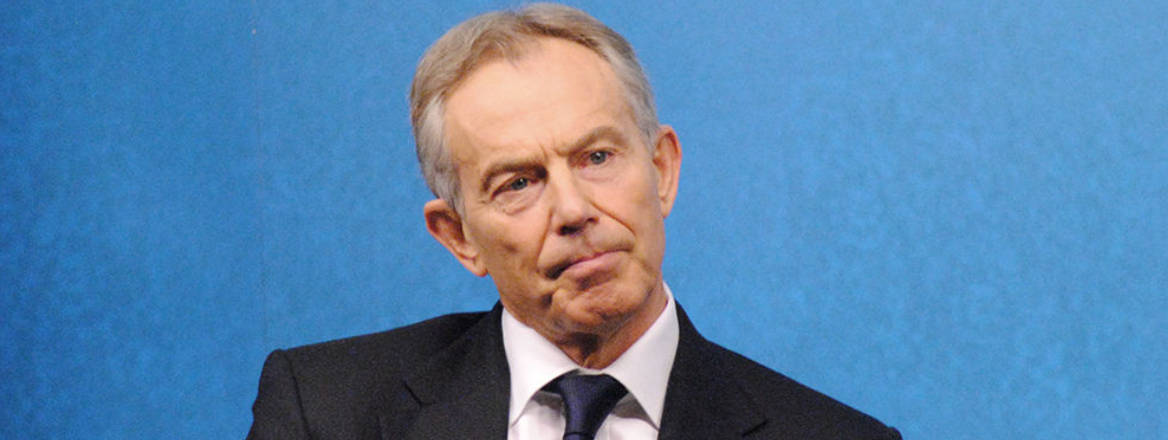The Iraq Inquiry's devastating critique reveals how Tony Blair led the UK into a strategic blunder from which neither Britain nor the region has so far recovered.
The Chilcot Report reinforces the view that Tony Blair will not be held criminally responsible for taking Britain to war in Iraq. That is no surprise. But Chilcot’s devastating critique is a surprise insofar as it reveals just how systemic was the policy failure over which he presided. Tony Blair was determined to exercise prime ministerial leadership and he led the country into a strategic blunder from which neither Britain nor the region has so far recovered.
His sin, as Chilcot reveals, was not one of dishonesty or fraud but rather of hubris. In the 29 letters the Report cites between him and President George W Bush it is clear that Blair was on a mission to change the political landscape across the whole Middle East. Over Iraq itself, he certainly committed Britain to war, shoulder to shoulder, with the US. But he regarded war as the last resort, only after he, Tony Blair, had pulled off a diplomatic coup that would deliver the US to the United Nations for a legitimising resolution; deliver the other Europeans to the US coalition; and deliver a new road map for peace in the Arab-Israeli dispute to line up the Middle East powers behind the anti-Saddam coalition. He would make Bush’s Iraq policy work in a way that Bush never could. And if the trick came off the threat of war might not have to be carried out. But it failed on all fronts when a second UN Security Council Resolution that would authorise military action was ruled out. Blair was then committed to a US-led war – a last resort for him – but not, as Chilcot points out, a last resort for diplomacy to address the ‘Saddam problem’.
Tony Blair had created a British policy momentum, largely driven from Washington, which became impossible to slow down, still less reverse. The systemic failure to get off the rails that a prime minister, obsessed with leading from the front, had laid down is the real Chilcot story behind Tony Blair’s own.
The military systemically failed. After a decade of success in smaller operations, in Bosnia, Croatia, Kosovo, Macedonia and Sierra Leone, this operation was treated as different – because it would be a three-Brigades war – but also the same, because it would then be a ‘soft hat nation-building’ job. But the military was not best prepared in either case. When the ‘northern entry option’ into Iraq was ruled out by Turkish opposition to the war, there was some frantic improvisation to fight a war along the Basra front. And subsequently there was no magic dust that Northern Ireland, Bosnia, Kosovo, etc had sprinkled on British forces that gave them some innate ability to do the soft hat role in an area they did not understand well, for which they had inadequate intelligence, little political control, and too few troops on the ground.
The military over-promised and under-delivered. It was not entirely their fault but military chiefs were unable, or unwilling, to get off the rails the prime minister had laid down immediately after the 9/11 attacks. In the event, the Iraq and Afghanistan operations undermined each other. Having achieved a cheap victory in Afghanistan, US and British attention was turned towards Iraq in 2002–03 at exactly the time when they needed to consolidate their victory over the Taliban. And having achieved a cheap victory over Saddam, British and then American attention was turned back to Afghanistan in 2005–06 at exactly the time when they needed to consolidate their position in Iraq. The military simply could not sustain two such operations simultaneously without some national mobilisation for war-fighting. There were never enough deployed troops in either theatre. There was never enough good intelligence, or sufficiently agile equipment responses to the challenges. If there was brutal honesty within the military establishment, it was not communicated well enough to the political establishment.
No, Tony Blair will not face a legal challenge over his leadership in these years. But like the tragic Shakespearean figure he now appears to cut for himself in the light of the Chilcot Report, he will face the judgement of history, which may be a good deal harsher.
Professor Michael Clarke was Director-General of the Royal United Services Institute (RUSI) from 2007 to 2015.
To find out more about RUSI's work on the Iraq War please click here.
WRITTEN BY
Professor Michael Clarke
RUSI Distinguished Fellow, Military Sciences


